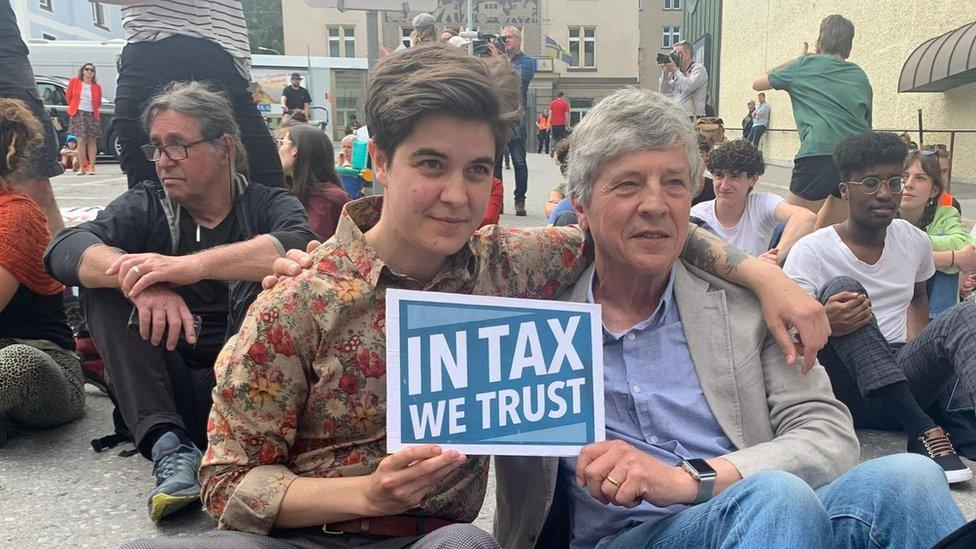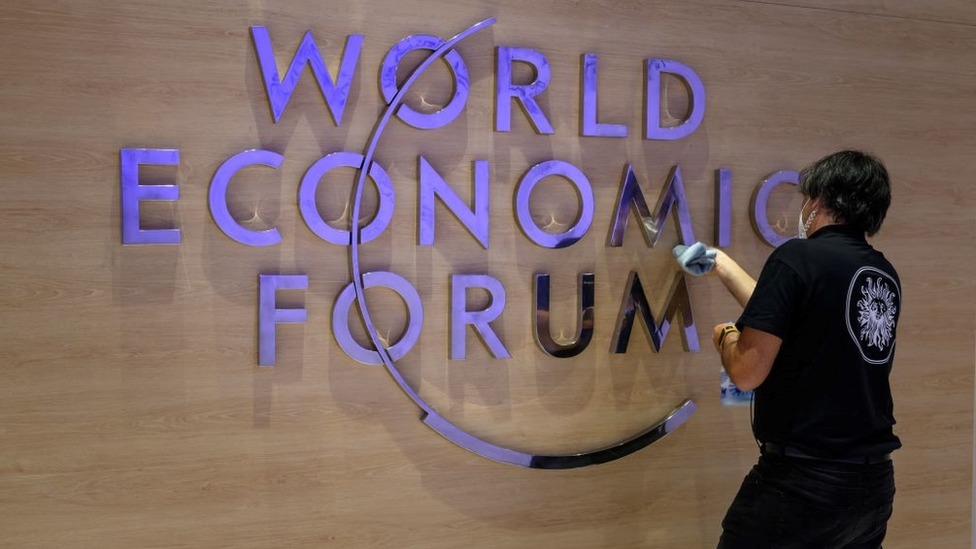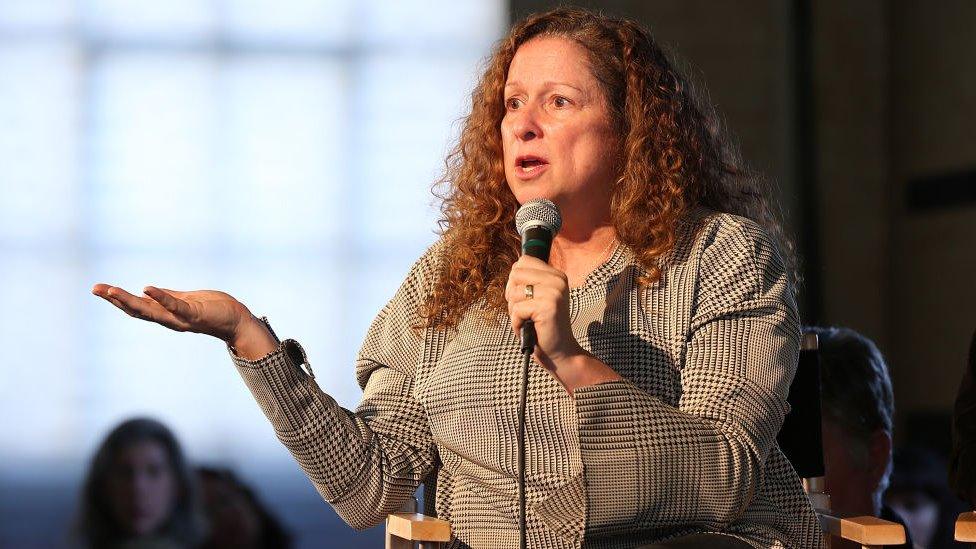Millionaires at Davos say 'tax us more'
- Published
- comments

Millionaires Marlene Engelhorn and Phil White joined a Davos protest calling for higher taxes on the wealthy
A handful of wealthy attendees gathered in Davos are calling on world leaders to tackle the cost of living crisis by pushing up taxes for people like them.
They took to the streets on Sunday alongside left-wing activists to call for fairer tax systems worldwide.
Political and business leaders are at the first in-person World Economic Forum (WEF) since the pandemic began.
But criticisms are mounting over the way the wealthy have profited in the last two years.
UK millionaire Phil White said: "While the rest of the world is collapsing under the weight of an economic crisis, billionaires and world leaders meet in this private compound to discuss turning points in history.
"It's outrageous that our political leaders listen to those who have the most, know the least about the economic impact of this crisis, and many of whom pay infamously little in taxes. The only credible outcome from this conference is to tax the richest and tax us now."
Mr White, who represents a group called Patriotic Millionaires, made his money as a business consultant. He said he was joining left-wing and anti-poverty campaigners calling for change at the annual meeting of influential business people and political leaders because the current economic system was failing.
Over the past decade, a growing number of millionaires and billionaires in the US and Europe have spoken out, calling for governments to impose higher taxes, including wealth levies on the richest.
While only a small number of millionaires were in Davos to attend the protest, the campaigners have sent an open letter to all Davos delegates, signed by more than 150 millionaires in several countries.
New signatories to the letter, which was initially sent in January, include the American actor Mark Ruffalo. Among the earlier supporters of the movement are Disney heiress Abigail Disney, Nick Hanauer, a US entrepreneur and early investor in online giant Amazon, and Morris Pearl, a former managing director at investment firm BlackRock.
Marlene Engelhorn, another millionaire at the protest, said: "As someone who has enjoyed the benefits of wealth my whole life, I know how skewed our economy is and I cannot continue to sit back and wait for someone, somewhere, to do something.
"We have hit the end of the line when another quarter of a billion people will be pushed into extreme poverty this year."
The charity Oxfam, which issues a report on inequality during the Davos forum each year, claims that over the last two years a new billionaire had been created every 30 hours.
At the other end of the income spectrum, Oxfam expects around one million people to fall into extreme poverty every 33 hours this year, the charity's international executive director Gabriela Bucher told the BBC.
"Inequality between countries had been reducing over the last couple of decades," she said.
"During the pandemic it had increased and with the rates we're seeing now it looks like it's going in extreme directions that are creating these catastrophic conditions and they reflect in people's lives."

Energy prices began to rise towards the end of last year, but grew more steeply following Russia's invasion of Ukraine. Prices for food and other goods are also sharply higher.
Geopolitical tensions are making it harder resolve tensions over trade, and growth has slowed in much of the world.
The world's richer countries collectively grew by just 0.1% in the first three months of this year, according to the Organisation for Economic Co-operation and Development, with the US, Italy and Japan shrinking in the quarter, and France experiencing zero growth. The UK's economy grew by 0.8%.
Ahead of the WEF meeting, the head of the International Monetary Fund, Kristalina Georgieva, said the global economy was facing a "confluence of calamities" with trade fragmenting.
This WEF meeting is taking place later in the year than usual, meaning the 2,000 leaders, experts and business people attending will not be able to enjoy skiing in their spare time in the Swiss resort.
Topics on the agenda include the war in Ukraine, pandemic recovery and climate change.
- Published23 May 2022

- Published23 May 2022

- Published19 January 2022
